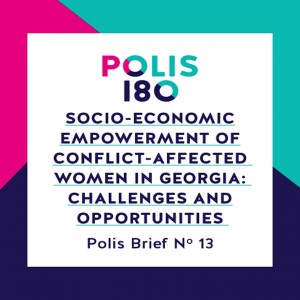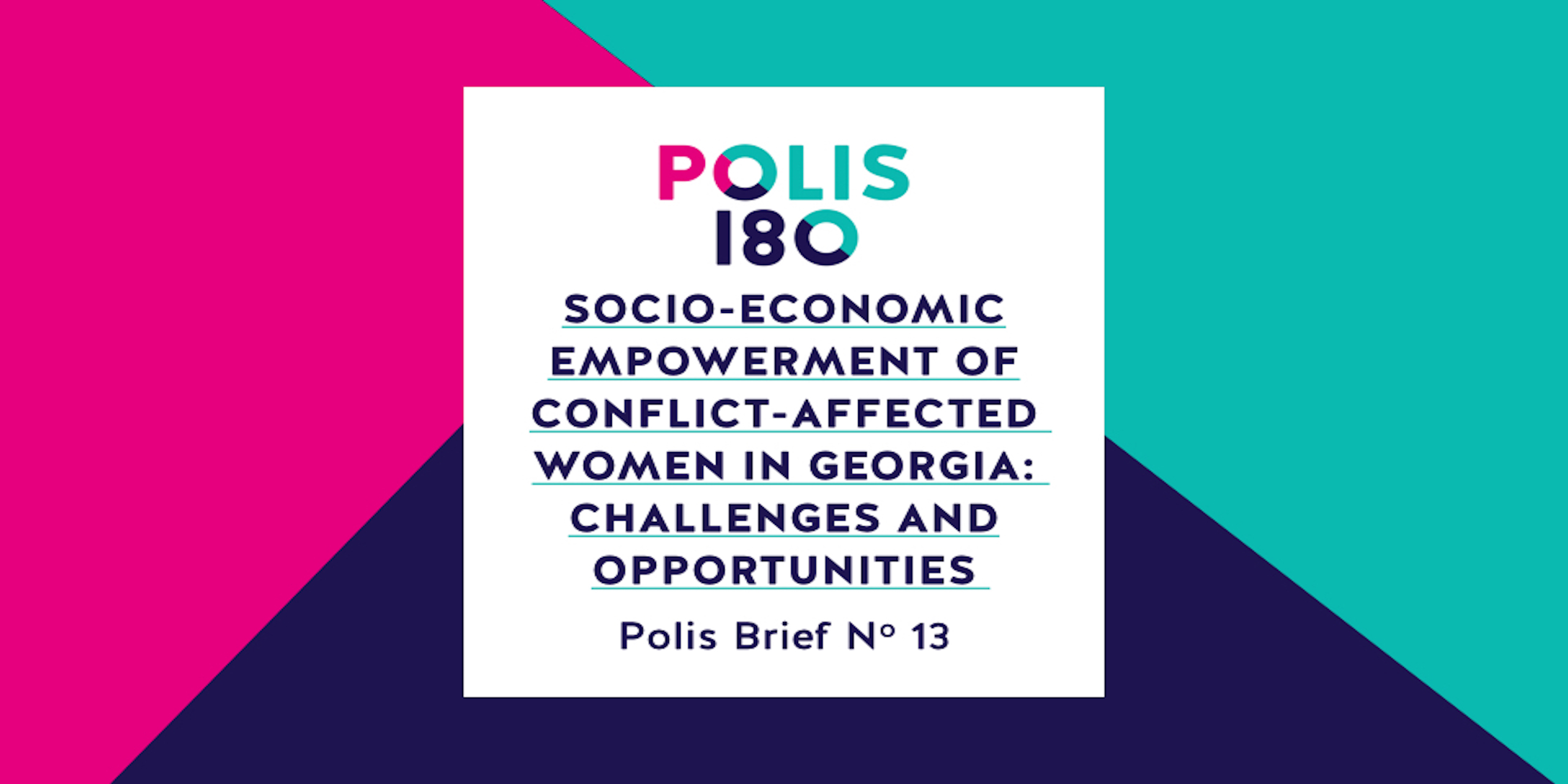Polis Brief N° 13
Socio-Economic Empowerment of Conflict-Affected Women in Georgia: Challenges and Opportunities
Written by Ana Lolua
This Polis Brief looks at the socio-economic challenges facing conflict-affected women in Georgia today. More specifically, the brief analyzes gaps in Georgia’s official strategy to deal with the socio-economic inequalities these women experience as a result of armed conflict and subsequent displacement. State and non-state actors widely agree that, while not a panacea, economic empowerment programs positively contribute to disadvantaged groups’ socio-economic well-being and their increased autonomy. The main problem with the empowerment programs proposed by the Georgian government is the absence of sex-disaggregated data on engagement with conflict-affected women, who often struggle with a lack of adequate housing and unequal access to education and the job market. The government’s efforts also lack the necessary funding, which seriously impedes their effective implementation.
This Polis Brief is published within the framework of the project “Women, Peace and Security: A Chance for Georgia’s and Ukraine’s Protracted Conflicts”, implemented by Polis180 (Berlin), IDP Women Association Consent (Tbilisi) and Ideas for Change (Kyiv). While the project was funded by the Federal Foreign Office, the publication is the sole responsibility of the project implementers and does not necessarily reflect the views of the donor.

